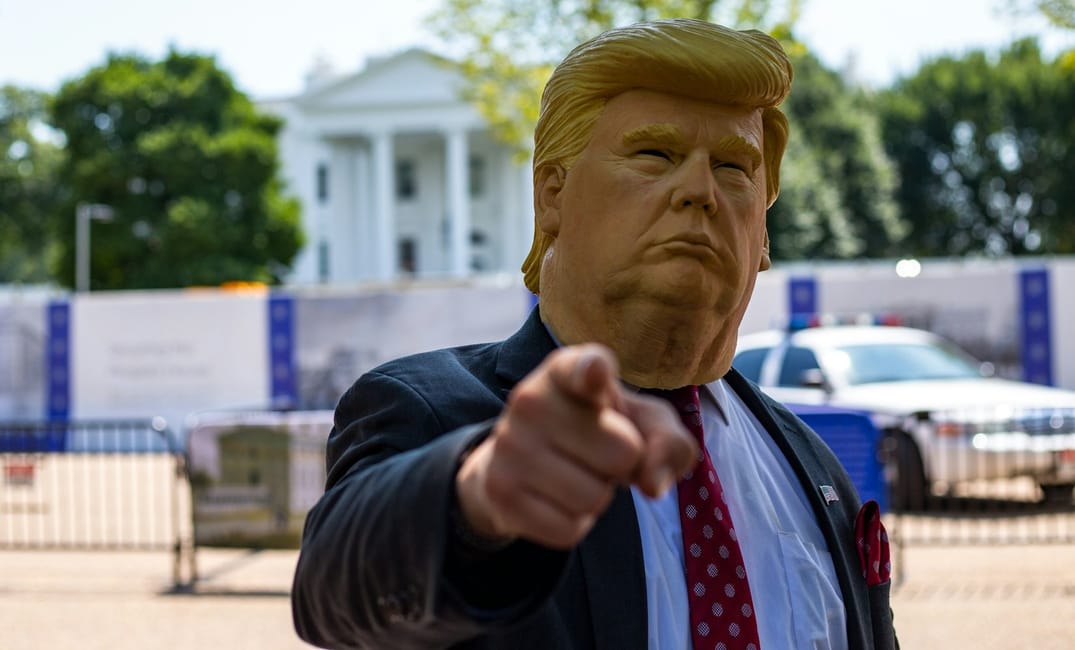✏️ Sean Boyle
If 2020 had been anything close to a ‘conventional’ year in American politics, the re-election of Donald Trump could almost have been considered a certainty.
The past four years of scandals, twitter tirades and erratic governance had done little to deter his most die-hard supporters, who seemed to be as devoted as ever at the start of 2020. Having threatened war with Iran, survived impeachment and repeatedly ‘called out’ Chinese President Xi Jinping on the world stage, his position as US commander in chief seemed as unshakeable as it was intolerable. Public approval of his presidency was at an all-time high of 49%, Democrat voters were divided over who to elect as their nominee and his new slogan of ‘Keep America Great’ had been met with resounding approval from his northern voter block. In short, a second Trump term was looking like the inevitable outcome of the November election.

However, the past 7 months have been difficult. Covid-19 has exposed the staggering shortfalls in his government’s capacity to inform, lead and shield the American people in a time of crisis. The murder of George Floyd has sparked the largest social protest movement in US history, bringing an estimated 26 million protestors onto the streets demanding police reform and structural change. The unemployment rate has climbed to 14.9% – a rate higher than the Great Depression – while government sponsored stimulus packages have failed to support people’s fall in wages and their living costs.
For a lot of his supporters, Trump’s disregard of compromise, mistrust of professional advice and ignoring of criticism had once been considered his most admirable traits. But their disastrous application to the current crises have substantially cracked the ‘cult of personality’ that has protected him up until recently. Having ordered police forces across the country to ‘dominate’ protestors ‘at any cost’, repeatedly denounced Covid-19 as a hoax and had citizens tear gassed to make space for a photo opportunity, Trump’s abhorrent lack of concern for his own people finally proved impossible to ignore.
Coupled with media appearances threatening stricter punishments and directly attacking media criticism, the ferocity of the ‘Trump establishment’ has inspired cross party effort from across political spectrum against Trump. Anti-establishment sentiment, public frustration and the disillusionment with ‘the system’ – all elements that he once wielded to his advantage – now form the basis of the central campaign against him.
His past actions appear to have had a significant impact on his future ambitions. Over 80% of the moderate/centrist ‘swing state’ voters, whose support was crucial in Trump’s 2016 electoral victory, now say that they will actively vote against him. More whites than not have expressed direct support for the Black Lives Matter movement, a factor that insinuates that come November, Trump’s prized ‘Silent Majority’ voter demographic may not be as devoted as his tweets suggest. Across the entire electorate, his public approval rating has fallen to 36%, while Biden’s has risen to 50%. Most crucially, with less than 100 days to go before the election, the incumbent president consistently polls lower than his challenger with regard to every major electoral topic: handling of the pandemic, morality, willingness to reform the justice system, investment in schooling, approach to China and protecting US security on the global stage.
Trump now stands at the centre of a storm all of his own making. In stark contrast to the previous electoral race, he is no longer seen as the roguish outsider promising to deliver on the promise of the American Dream. Instead, he is a hostile, trigger happy force of harm, whose capacity for morality and regard for the welfare of his people resembles more that of Brazillian President Jair Bolsonaro or China’s leader Xi Jinping, with each day that passes.
While admittedly a lot can occur between now and election day, it remains exceedingly unlikely that any of the current crises Trump is intertwined with will be resolved before 2021. 2020 has been a year of unconventionality and shock for many, but perhaps it’s greatest upset is what awaits the current president in four months’ time.
Thanks for reading our article! We know young people’s opinions matter and really appreciate everyone who reads us.
Give us a follow on Instagram, Twitter and Facebook to stay up to date with what young people think.

